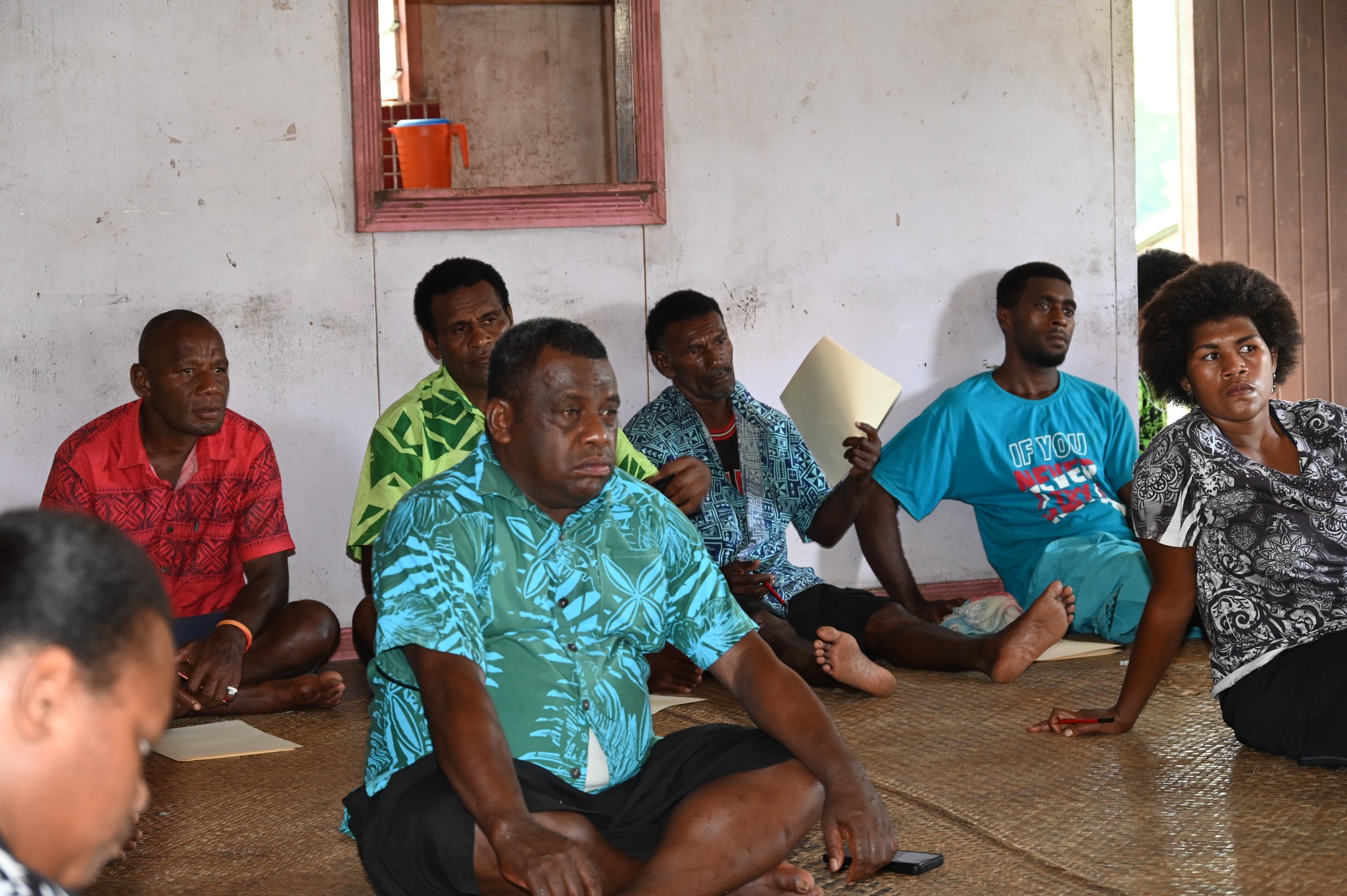DALO FARMERS OF THE NASAU DISTRICT RECEIVE ESSENTIAL TRAINING FOR SUSTAINABLE FARMING
March 3, 2025

The Ministry of Agriculture and Waterways in Fiji is actively supporting dalo farmers in Ra by providing comprehensive training programs to enhance their skills and knowledge.
These initiatives are part of the Ministry's broader efforts to promote sustainable agricultural practices, improve food security, and boost the livelihoods of farmers in the region.
As part of this ongoing commitment, a vital training session for dalo farmers for the district of Nasau in Ra was recently conducted at Nasau village.
Agriculture Technical Officer (Ra) Milika Salabogi said the training emphasizes the critical importance of equipping farmers with the necessary tools and techniques to achieve better yields and resilient farming systems also highlighting the significance of dalo farming to the local community and food security.
"Dalo farming is integral to our heritage and a primary source of income for many families in the Nasau district. This training will empower our farmers with the latest techniques and knowledge to improve their yields and sustain their livelihoods," she stated.
The Ministry's initiative focuses on providing training that addresses the specific needs of dalo farmers in the Nasau district covering key topics such as improved and traditional dalo varieties, agronomic practices, pest and disease management, post-harvest handling, and value chain optimization.
“These sessions aim to enhance farmers' productivity and resilience by also addressing the critical areas of cultivation and farm management,” she said.
“A vital aspect of the training is educating farmers on the importance of genetic diversity in dalo cultivation also highlighting the benefits of growing both improved and traditional dalo varieties, which can help reduce vulnerability to pests, diseases, and environmental changes.”
She added that genetic
diversity is essential for creating resilient farming systems and ensuring
long-term sustainability.
Sustainable farming practices are a major emphasis of the training.
Farmers are encouraged to integrate traditional knowledge with modern agricultural techniques to achieve optimal results.
"Blending traditional wisdom with innovative practices can lead to more sustainable and resilient farming systems," she said.
Nasau village headman Mitieli Nadai said the training has brought much-needed support and development to the farmers.
“We greatly appreciate training programs that come to our village and contribute to enhancing our livelihoods. As farmers and livestock raisers, we face challenges due to unreliable internet and phone connections, which hinder our ability to stay informed about developments in larger towns and within the ministry,” he said.
“This training program has brought us immense joy as our primary concerns revolve around agricultural practices and the difficulties we encounter. We look forward to the continued support and development initiatives that will help improve our community's wellbeing."
The ongoing training session aims to empower farmers, improve their livelihoods, and contribute to the overall agricultural development in the region. By the end of the program, Nasau Village dalo farmers will be well-prepared to implement sustainable farming practices and enhance their crop resilience.
ENDS
